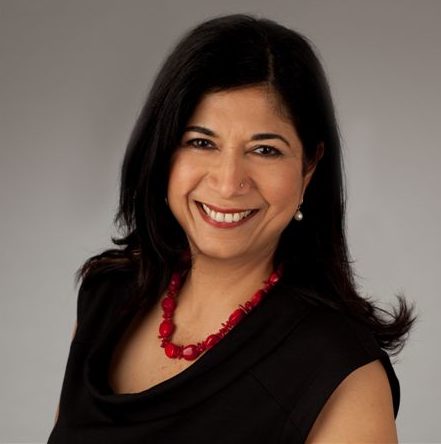I am delighted to bring this thought provoking guest blog to you by Sharif Khan. Sharif is a freelance writer, inspirational keynote speaker, and author of Psychology of the Hero Soul, a leadership book on awakening the hero within (mentioned in USA Today and Reader’s Digest). Based in Toronto, Sharif’s latest project is the completion of a manuscript for a heroic fantasy novel. Visit his website www.herosoul.com or contact him directly at sharif@herosoul.com
What can we learn from Nelson Mandela’s heroic legacy of hope to become better human beings?
Let us use his name as an acronym for remembrance and change:
Mission. Action. Nourishment. Discipline. Education. Love. Attitude
Mission. Mandela had a deep sense of mission. In his fight for freedom from apartheid in South Africa he declared:
“I have cherished the ideal of a democratic and free society in which all persons live together in harmony and with equal opportunities… If needs be, it is an ideal for which I am prepared to die.”
Mission creates meaning, and meaning is the fuel for sustained achievement. People are willing to lay down their lives for a worthy cause.
Do you have a mission statement for your life and career? What about for your family, team, or organization?
Action. Too many political leaders today do not back up their empty rhetoric with action.
Mandela at his core was an activist, a man of action; so much so, that even in his later years amidst failing health when he announced he was “retiring from retirement,” he still managed to found the Nelson Mandela Legacy Trust promoting economic assistance to Africa.
He also campaigned successfully for South Africa to host the 2010 FIFA World Cup.
Are you actively campaigning for your mission? Do you back up your words with action?
Nourishment. Imprisoned for 18 years at Robben Island for his anti apartheid activities, Mandela was confined to hard labour in a lime quarry where the glare of the sun burned his tear ducts, making it difficult for him to weep for his lost youth.
Despite his privations, Mandela found solace through literature, nourishing his inner soul and that of his fellow inmates by reading Henley’s Victorian poem “Invictus” over and over again.
During his imprisonment at Pollsmoor Prison, Mandela smuggled a letter of encouragement to South African trumpeter
Hugh Masekela, inspiring him to write the upbeat anthem song, “Bring Him Back Home,” thus nourishing the souls of his supporters through music.
Years later, after the song fulfilled its wish, a free Mandela as first black President of South Africa, provided nourishment to François Pienaar, captain of the national rugby team, the Springboks, through moral encouragement and support, giving him a copy of the “Man in the Arena” passage from a Roosevelt speech.
The Springboks went on to win the 1995 Rugby World Cup – providing nourishment to a nation.
How are you nourishing your inner soul and the souls of those that matter to you in times of adversity?
Is there a poem, a passage, or play you can read or a recording or film clip you can play to provide nourishment to family, friends, fellows, and even foes?
Discipline. Mandela was a dreamer with discipline. Even during imprisonment, every morning without fail he would get up
and perform his daily exercise regimen, which consisted of up to 45 minutes of stationary running in his cell, a hundred fingertip push-ups, two hundred sit-ups, and other callisthenics.
His daily routine kept his mind sharp and alert so he could stay focused on his mission.
What daily discipline can you adopt to better your life? (It doesn’t have to be an ordeal. Many successful people report that a few minutes of meditation at the start of the day helps them to be more calm, focused, and productive.)
Education. Mandela was a strong advocate for higher education.
Earning his law degree from the University of Witwatersrand, Mandela was a practising lawyer who founded South Africa’s first black law firm with Oliver Tambo in 1952.
In his own words, Mandela believed: “Education is the most powerful weapon which you can use to change the world.”
Excellence is about education and execution. In tough times, many organizations have cut-out the educational component.
How are you incorporating education into your life? Have you thought of getting higher education beyond your diploma, certificate, or degree? Consider adopting the daily discipline of reading an hour a day in your field.
Love. You don’t have to like your enemies, but you can learn to respect them. And respect is the first step toward love.
How did Mandela accomplish the impossible task: to love thy enemy? He took it upon himself to learn everything he could about his Afrikaner oppressors by studying their culture, history, and literature.
The empathy and understanding gained from his efforts was instrumental in getting him freed from prison; and he returned not a bitter man, but a compassionate leader – offering reconciliation over retribution.
It was this colossal love that conquered hatred that earned him the Nobel Peace Prize and Presidency of South Africa.
What act of love can you do this week in memory of Mandela? It doesn’t have to be a colossal act; start small, like lending a helping hand to someone in need, or paying a genuine compliment to a foe.
If nothing comes to mind, perhaps the greatest enemy of all is within. Learning to forgive yourself and love yourself unconditionally helps unburden the soul and clears the way for expressing love.
Attitude. Attitude is a way of thinking and behaving. It is our attitude that ultimately determines our altitude in life.
Regardless of the circumstances life brings us, we always have the choice to respond or react accordingly.
Mandela chose optimism, hope, and possibility over despair, hopelessness, and helplessness. He was certain that he and his people would one day be free.
Right from the beginning of his imprisonment at Robben Island, he told his inmates to slow down their march, and he directed the pace. He believed he was in control. He believed in the passage from the poem, Invictus:
“I am the master of my fate:
I am the captain of my soul.”
Carefully observe your attitude. Do you focus on the problem or the solution? Do you view yourself as the victim or victor?
Mandela clearly envisioned himself as the victor. He was and is Invictus, which means ‘unconquered.’
Unconquered by hardships, unconquered by hate, and in some respects, even unconquered by death.
For although the world has lost a great leader, a light has not gone out in the world, but is reborn, blazing brighter in the hearts of millions who honour his heroic legacy of hope.
With each act of courage, with each act of compassion, let us celebrate:
M-A-N-D-E-L-A!







 Follow Jasbindar on Twitter
Follow Jasbindar on Twitter



